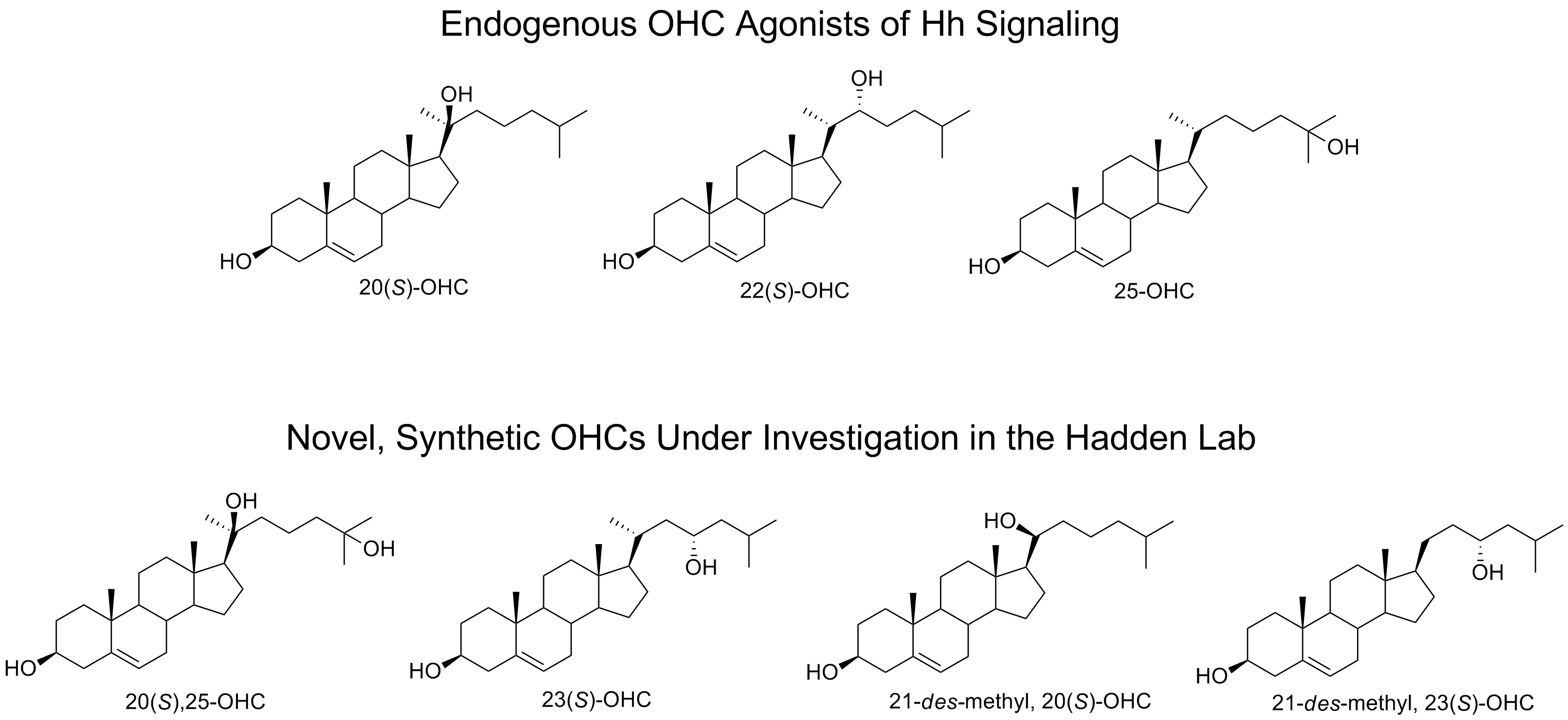The Hedgehog (Hh) signaling pathway is a developmental signaling pathway that plays multiple roles during embryonic development, including directing neuronal cell growth and tissue patterning. While the application of small molecule Hh pathway inhibitors as anti-cancer chemotherapeutics is more clearly defined, modulation of the pathway also holds potential as a target for neurodegenerative disorders including Parkinson’s disease (PD), amyotrophic lateral sclerosis (ALS), and diabetic neuropathy.1 Recent studies have also explored the osteoinductive effects associated with activation of the Hh signaling pathway. Stimulation of Hh signaling with several oxysterols (OHCs) resulted in significant osteoinductive effects in vitro and modest induction of bone formation in vivo. De novo stimulation of bone formation is of significant clinical interest for a variety of situations, including spinal fusion surgery, bone fracture repair, and treatment of osteoporosis. Taken together, these studies indicate that activators of Hh signaling are valid leads for further development as therapeutic agents for a variety of neuro- and osteodegenerative disorders. The Hadden lab is actively involved in establishing structure-activity relationships for OHCs as Hh agonists and exploring these compounds as potential therapeutic agents.
